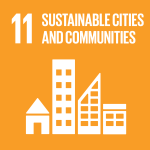
Photo:
With funding from the GEF-Least Developed Countries Fund, the 5-year project 'Landscape restoration for increased resilience in urban and peri-urban areas of Bujumbura in Burundi' will strengthen integrated watershed management and flood management of the Ntahangwa river connected to Bujumbura to ensure the resilience of both upstream highland communities and downstream lowland communities living in urban areas.
The project will include a comprehensive planning and management approach making use of climate information available in the country together with specific investments in landscape restoration, flood management measures and resilient livelihoods support. Landscape restoration in areas connected to Bujumbura will help restore flood-related ecosystem protection for both highland upstream communities and lowland urban communities with adaptive solutions ranging from tree planting to watershed protection and reinforcement of riverbank structures.
At least 120,000 people from the two Bujumbura Provinces, Bujumbura Mairie and Bujumbura Rural, or about 8% of the total estimated population in these two provinces will directly benefit from the project (half of project beneficiaries are women). The project will restore 3,000 ha of degraded areas through tree planting, an additional 1,000 km of anti-erosion ditches and terraces and 1.5 km of flood control infrastructures along the Ntahangwa river in Bujumbura itself. The watershed area is estimated between 12,829 hectares, the project aims to ensure that 10,200 ha, or 80% of the watershed's estimated area, are put under improved management.
To complement the restoration efforts, livelihood activities are needed to reduce the vulnerability of populations by promoting green entrepreneurship and providing better access to markets (initial main sectors targeted are agriculture and agro-industry as well as the charcoal sector) connecting urban communities to peri-urban communities in the watershed. The charcoal sector’s reliance on trees makes it a prime sector to target through a climate-resilient value chain approach. The agro-business sector will benefit from increasing the value of agricultural products and creating new investment opportunities. The urban focus of this project opens new doors to tap into the nascent startup ecosystems of Bujumbura while providing support for youth entrepreneurship and employment opportunities. Resilient livelihood options and green entrepreneurship are important strategies to rebuild Burundi’s economy as part of its post-COVID-19 recovery efforts.
- Community
- District
- National
- Local Governments
- National Governments
- United Nations Development Programme (UNDP)
- Government of Burundi
- Global Environment Facility (GEF)
- United Nations Development Programme (UNDP)
- Image

- Image

- UNDPJulien SimeryRegional Technical Specialist, Climate Change Adaptation

